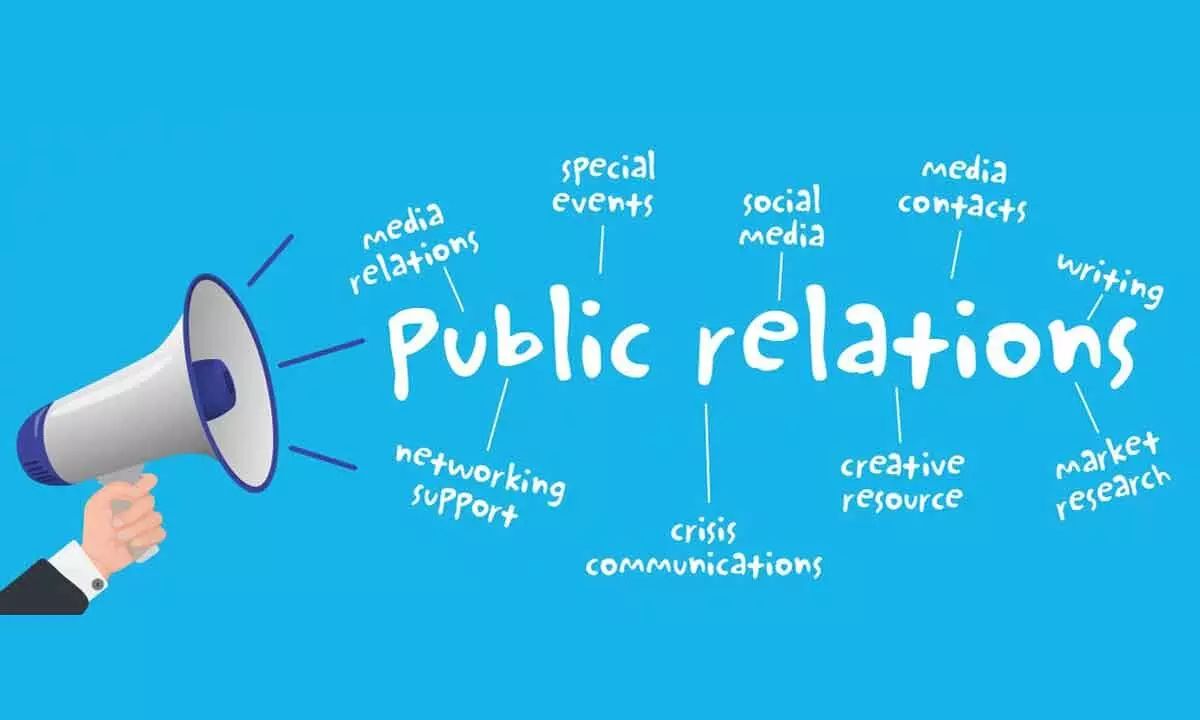Public relations is the fifth ‘P’ of marketing
Over a period of time, PR has evolved and cemented itself as a management function
image for illustrative purpose

Today they not only handle public relations but render a combination of aspects, which mandates that the individual must understand communications, business management, philosophy, economics, psychology, political science, and journalism, and to some extent marketing too
As a nomenclature and a profession, public relations took-off in 1903 when Ivy Lee pioneered it. Today, it is getting importance and recognition in India as a management function that is integral to the integrated communication mix.
As a profession it has grown in stature with the advent of PR consultants specializing on image managements of brands, corporates and personalities. Today, it is the fifth ‘P’ in the world of marketing, after ‘Product’, ‘Positioning’, ‘Pricing’ and ‘Promotion’.
I want to recall those days when a girl or boy who could speak better English and had a pleasant personality could approach the Chief Executive, who would say, ‘you are my PRO from today’.
However, over a period of time, PR has evolved and cemented itself as a management function. Its importance is such that it would be a failure on the part of the management to have a person who does not possess a background in public relations.
Now, that's where the importance of PR education comes in. You come to the profession with a basic qualification in Public Relations & Journalism or Information Management. Contrary to the times when PR was all about ‘wining and dining’, today public relations is a management necessity.
As regards professional excellence and multitasking, today they not only handle public relations but render a combination of aspects, which mandates that the individual must understand communications, business management, philosophy, economics, psychology, political science, and journalism, and to some extent marketing too. We should be generalist, and at the same time, a specialist in public relations or information management or media management.
So what should be the basic qualities of a PR professional?
In my view, the first task of the individual is in winning over the reporter or editor with his message. Once you convince the editor that his employer has been doing it in the public interest, then the media person would most probably use that information. And this is the reason I have a message for organisations or whosoever is taking the services of PR professionals, “Please don’t come to your Public Relations department only when there is a problem, rather continuously maintain cordial relations. We don't like to be managed; we don't like to be used, we would like to be useful. So when you want us to be useful, you should know what to tell us. How we can be useful and how we both can be useful to society; to the public at large.”
Public relations specialists establish and maintain relationships with an organization's target audience and relevant trade media. To achieve this, they take the help of various tools – the main tool is writing before embarking on the task of designing message-oriented campaigns. Writing doesn’t mean a good copy on the achievements and activities of the firm.
Writing here means preparing a short and crisp copy carrying the important topics for the print media and another for the electronic media. It includes writing speeches for organization leaders, arranging interviews and writing authored articles and social media content.
A smart PR person generates an article featuring either the leader or the organization’s activities to inform the public, prospective customers, employees, and other stakeholders. The basic purpose is everyone associated with the organization should maintain a positive or favorable view about the organization, the team, and their decisions.
(The writer is advisor to the SME Chambers of India for Telangana State and Andhra Pradesh)

